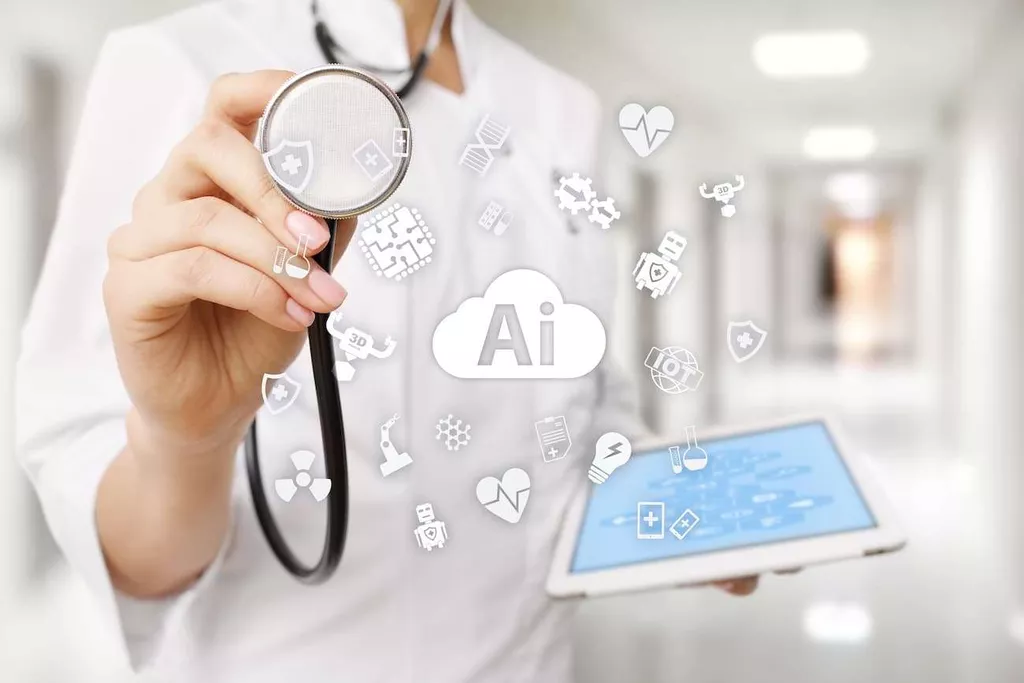Conversational AI in Healthcare Transforming the Patient Care With AI Chatbots and Voicebots by floatbot
This interaction has undoubtedly led to a growth in the popularity of virtual dealing in the healthcare industry. The progressive evolution of technology has spawned creative new approaches to artificial intelligence (AI). Of the many other sectors, these developments have had a significant impact on the healthcare sector also, especially during the pandemic. Several AI systems have been improved to ensure the best healthcare outcomes in all possible circumstances. Our customer service solutions powered by conversational AI can help you deliver an efficient, 24/7 experience to your customers. Get in touch with one of our specialists to further discuss how they can help your business.
It is laying a huge impact on the patient’s engagement and offering the required digital enhancement. This digital alteration within healthcare will help provide a strong base for this sector. With AI within healthcare, the training of healthcare professionals has become easier and stronger. The ability of an AI computer to seek out the best scenarios from the database and respond to queries, offering advice or information for final decisions to a trainee, can be useful. AI-driven training also saves time, cost, and resources as it can be conducted anywhere per the requirements. The AI can also be embedded within smartphones, so the training can be done with a few clicks without any challenges.
Streamline operations and optimize administrative costs with AI-powered healthcare chatbot support
The most important thing to keep in mind is how conversational AI systems differ from traditional software. Unlike traditional software, conversational AI solutions are not rule-based programs but complex systems that employ probabilistic models to learn from training data to make predictions. With this in mind, there are some key guiding principles to follow during testing. However, the benefits can be felt for humans directly as they engage through Conversational AI with inquiries regarding their health, insurance, and general information. Deliver your best self-service support experience across all patient engagement points and seamlessly integrate AI-powered agents with existing systems and processes. Kommunicate’s AI chatbots can send automated reminders to patients when it’s time to refill their prescriptions or take medication, helping to improve medication adherence.
- Care providers can deploy conversational AI to gather patient records, health history, and lab results in no time.
- Lastly, healthcare being a service that is universally accessed, the patient data could also include health details of various influential and political figures.
- By facilitating tasks with Conversational AI such as self-service scheduling and automating reminders and rescheduling processes, patients experience reduced wait times and fewer no-shows.
- AI solutions must ensure the right data is collected, stored, and used securely.
- Our IVA makes patient experience efficient and effortless, helping brands improve customer satisfaction and NPS.
- Before doing anything, it is important to establish a business case for deploying the conversational AI solution.
Nomi is a voice assistant that creates a personalized and immersive (not to mention hands-free) experience in our vehicles. The result is a perfect fit for an increasingly digitally-powered driving metadialog.com experience. Whether it’s through courses, articles, blog posts, tutorials or all the above and more, these materials lower the bar and help people to understand why they should use this technology.
Impact of COVID-19 Pandemic on Global Healthcare Chatbots Market
How they accomplish this is what distinguishes the simple bots from the artificially intelligent conversation agents. Medical terminology is vast and can significantly differ when used by physicians and patients. Hence, a substantial gap between the user’s language and the AI model can be generated, leading to false outcomes. It is a big challenge that is not yet entirely solved and is being worked upon to make medical bots more efficient and accurate. With staff shortages, humans often don’t have time to call and check on patients who haven’t been into the office for awhile or who might need to schedule an annual wellness exam.

Medical speech recognition technology has revolutionized the way clinicians document patient encounters. By eliminating the need for typing and allowing for direct dictation into electronic health records (EHRs), the complex documentation process no longer distracts from meaningful conversations with patients. Dragon Medical One is a cutting-edge conversational AI workflow assistant that acts as a documentation companion, streamlining clinical note-taking before, during, or after encounters.
Conversational AI Strategy For Healthcare Institutions
A conversational AI system using NLP supports physicians in accurate diagnoses and step-by-step diagnoses by asking a series of questions. COVID-19 has accelerated the need for a communication gap between healthcare professionals and patients that conversational artificial intelligence fills seamlessly. Healthcare providers can use Natural Language Processing (NLP) to assist patients with scheduling appointments and medication reminders. Additionally, this technology can also answer common queries and provide emotional support to patients who feel isolated or anxious. By using Conversational AI, healthcare professionals can improve patient experience and ultimately lead to better health outcomes without human intervention. By automating responses to common queries, patients can get quick and accurate information without human intervention.

To overcome this challenge, AI chatbot for healthcare and many other AI-driven solutions are used. Let us explore how conversational AI is helping healthcare industries in keeping up with the rising standards of patient engagement. AI in healthcare is used to read the patients’ symptoms and detect diseases in their early stages so that medical treatment can be started on time. As per the research, the review of an AI-based detection is 30 times faster and 98% accurate, which is also reducing the number of biopsies that are not required. Some devices are combined with AI and are wearables detecting the early stages of any heart disease. These devices help caregivers or doctors to monitor and detect the issues earlier in their treatable stages.
How will a health chatbot work?
What’s more, our AI is more accurate than competitors with the ability to self-learn and self-heal. We connect strategy, design and engineering services into a seamless workflow devised to build solutions with the right focus on impact, scalability, performance and prudence. As Star’s UX Design Lead, Oleksii Tymokhovskyi has designed user-centric products across Star’s AdTech and HealthTech industries both for B2B and B2C for over 3 years. Oleksii puts his 10 years of UX experience to help our partners focus their vision through the prism of user experience, practice a lean approach and leverage business value by design.
ChatGPT Continues to Prove Useful for Patient Education – PatientEngagementHIT.com
ChatGPT Continues to Prove Useful for Patient Education.
Posted: Thu, 18 May 2023 07:00:00 GMT [source]
Conversations with chatbots and voice assistants get exhausting when systems don’t understand users. It takes too many interactions for them to achieve something like booking an appointment or filling a prescription. Harnessing a futuristic data-driven culture in healthcare that empowers both care providers and patients mutually for making informed medical decisions. The next toughest challenge in patient engagement is identifying & scheduling services for healthcare.
What automated data processing (ADP) is and how it is powering business growth
Chatbots can free up significant time for workers to focus on critical tasks and higher-value work. The COVID-19 pandemic forced organizations to deploy conversational AI due to the spike in customer service requests. Therefore, businesses worldwide have accelerated their use of AI and software solutions to optimize and complement the customer service already on offer.
Who uses conversational AI?
Conversational AI can definitely be used in a wide variety of industries, from utilities, to airlines, to construction, and so on. As long as your business needs to automate customer service, sales, or even marketing tasks, conversational AI and chatbots can be designed to answer those specific questions.
